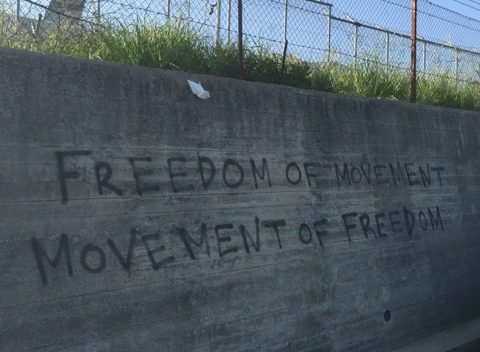The need to listen, before it’s too late

More than 50,000 people remain stranded in refugee camps in Greece. Most are waiting to continue their journey further into Europe in search of better lives for their families. But the asylum and relocation services are over burdened and under resourced so the process is excruciatingly slow. It is likely that the vast majority of these men, women and children mostly from Syria, Afghanistan and Iraq will continue living in camps for the foreseeable future.
With some notable exceptions – an excellent radio series by This American Life reporters and Internews’ In the Loop – the voices of these people are largely unheard. Ground Truth Solutions has been working in Greece to allow the voices of these refugees and migrants to be heard by the aid agencies that are trying to help them. We know that listening to the people who are supposed to benefit from their programs helps aid agencies improve their work.
Ground Truth Solutions has been working with the International Rescue Committee (IRC) in four sites in Northern Greece. IRC is providing water and sanitation facilities, safe spaces for women and children, essential transport for refugees and dealing with garbage removal from the camps. Feedback suggests these services are making a difference, but looking across the entire response, much more still needs to be done – conditions are not up to scratch and the people living in the camps are increasingly desperate. This desperation is largely rooted in their frustration at the slow cogs of the refugee registration machinery, but in the meantime, all actors could do more to improve the day-to-day existence of those at the mercy of the bureaucracy.
The results of the first two rounds of IRC surveys carried out in June and September found, in general, people felt they were treated with respect and were confident approaching IRC staff. The children’s spaces were thought to be effective but more information was needed on the women’s spaces. In round one, people reported insufficient hygiene items and mixed levels of access to safe spaces. In round two, thanks largely to new hygiene kiosks and awareness raising activities, these scores are improving. Respondents identified a lack of cleanliness in the camps and poor quality food – areas the IRC do not deal with directly, but have passed on to relevant partners. The IRC and others are working in challenging conditions; water supplies to the camps are unreliable and agencies have struggled to supply sufficient quantities of basic items like toothpaste. There have been protests about the quality of the medical care and some refugees held a hunger strike over the quality of the food. The situation is becoming increasingly tense and it is difficult for agency staff to do their jobs in the face of this frustration and anger. Morale is low among both agency staff and refugees.
It is an incredibly difficult situation. There are many challenges that won’t be easily overcome – especially the lack of clarity over the future of these refugees – but listening to people’s opinions and trying to respond to them goes some way to giving them the dignity they deserve, even in these desperate circumstances. What is clear however, is that many agencies are neither listening nor responding. If they had been, the growing frustration in the camps might have been headed-off. The IRC does not operate alone and while others are slowly joining the ‘feedback revolution’, the situation is such now that the collection of feedback is difficult and potentially dangerous, yet it has never been more important to understand refugees’ opinions and needs and try to address to them. Without this vital step the camps are headed for a downward spiral of frustration and dissatisfaction making the situation for an already vulnerable group of people even worse.
To read a personal account by Ground Truth Solutions’ Kai Hopkins about his experiences in the camps see here.
